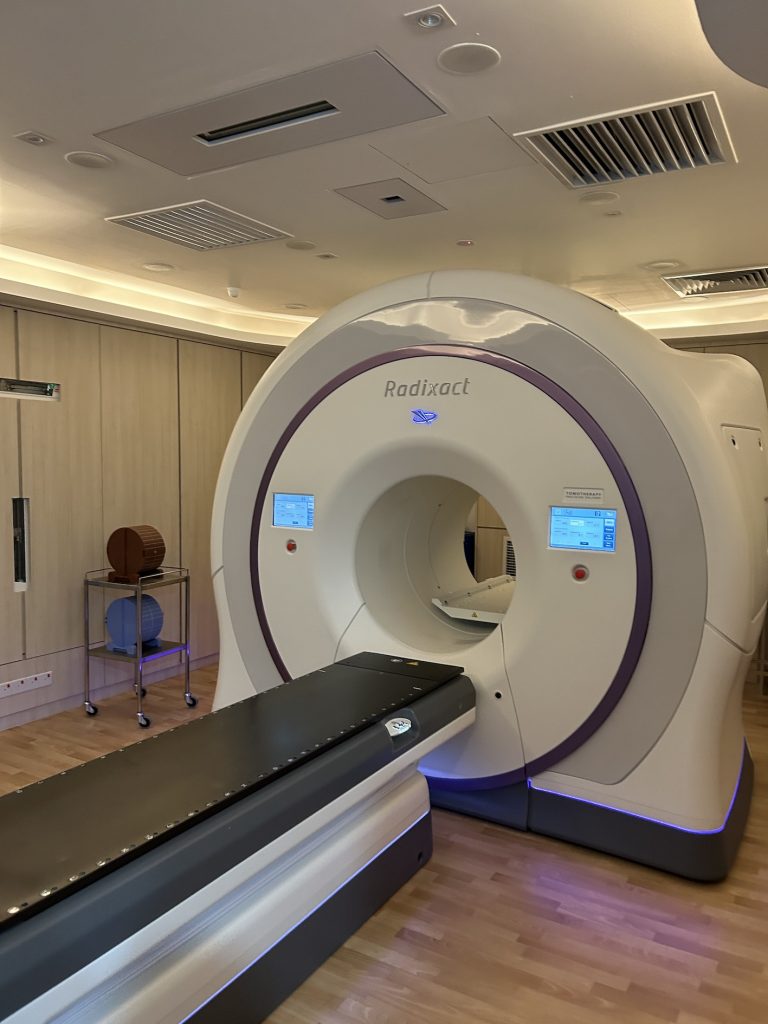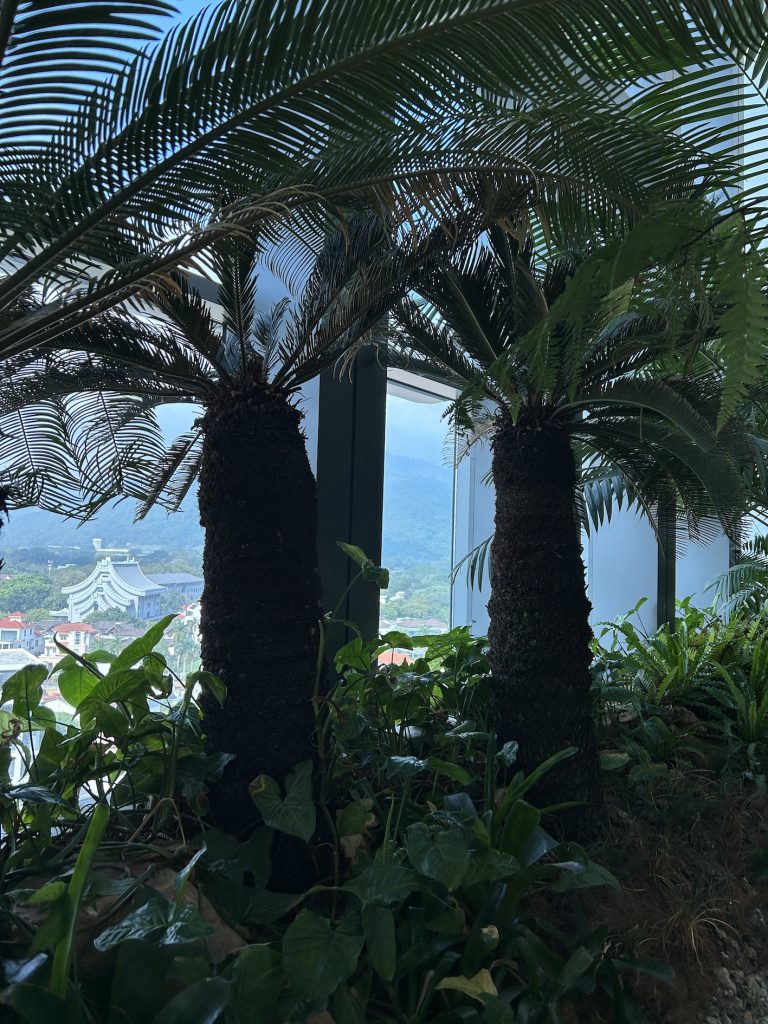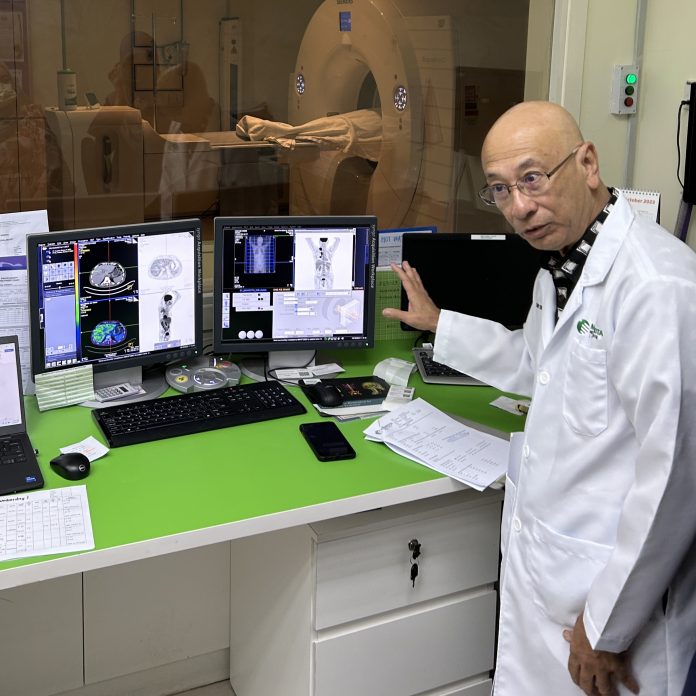Life experiences shape us and perhaps even define us.
Education, religion, sport, culture and much more all contribute to shaping our sense of community and contribution.
This isn’t sounding like a travel story, is it? But these are the thoughts I have as I’m watching a patient in a Malacca hospital have a scan for cancer and I can see on the screens in front of me that he does have cancer in his lungs and neck.
It’s a moment I can’t shake from a series of visits to Malaysian private hospitals, supported by the Malaysian Healthcare Travel Council. The hospitals I’ve visited have been in Kuala Lumpur, Malacca and Penang and all of them have world class oncology facilities but they all share another characteristic; a holistic wrap around treatment plan for patients that surrounds and embraces patients with support from everyone in the hospital community.
Seeing the patient in front of me and his cancer on the screen is redefining what I thought I knew travel could be. It has redefined my understanding of medical tourism and it has redefined me.

I’ve got some great photos of world class facilities in world class wards in world class hospitals, designed to save lives or make end of life as pain free as possible.
From a story point of view, that’s all I want to say about the equipment and buildings I looked at.
I want to tell you that the people I met with all have the highest level of care for their patients and their community and I was reminded of my own father, a Western Australian country GP. To be completely honest with you, I’m crying as I write this. The care and attention to each detail of each patient’s life in these four Malaysian private hospitals is exactly why my dad became a doctor and lived his life to serve his community.
With each visit I was reminded of why people should go into medicine; to care for the whole person and not just treat the illness, to support the local community with free lessons in CPR and organise community walks to raise awareness of local health issues. I meet staff who were delivered in the hospital they now work in! Staff who know that a patient’s identity is not just defined by the disease that brings them for treatment.
I’m a travel writer. I’m not a medical professional. It’s not for me to say whether you should travel overseas for treatment that you require but in an earlier story I did for medical tourism that piqued my interest into travelling to Malaysia, there were several emerging factors that made sense to me.
The cost of living is continuing to impact on all of us. If you require treatment and can’t afford it in Australia, why wouldn’t you do your research and find a country you trust to travel to and have the treatment you require? Why wouldn’t you consider affordability in the health decisions you make?
Time. Wait lists for treatment in our country may not suit your requirements. If you can get immediate treatment in a country you trust why wouldn’t you travel there? If you can be treated by a medical system that is world class and quicker to provide treatment than our own; then why wouldn’t you?
I’m sure the answers to my questions can be argued vigorously against by those who believe the only good health system is the one we’re familiar with and that’s the key for me, making yourself familiar with another way of doing things.
Again, I’m a travel writer not a medical professional. My observations in Malaysia while emotional and overwhelming were also reassuring. I walked the corridors with CEOs, directors, surgeons, doctors and nurses who understand what a great health system we have in Australia but also understand that each of us have decisions to make in our lives that perhaps their health system can help us with.
The strategy of the Malaysian Healthcare Travel Council is to recognise high quality care and set new benchmarks for global healthcare travel. The doors were opened for me to visit the four finalists of the Flagship Medical Tourism Program who are best demonstrating not just the biggest and best equipment you’ll find anywhere in the world but strategies to incorporate patient feedback into patient services, personal navigators to guide you through your treatment, sky gardens, soft lighting in corridors and a million other things that prove you’re truly being cared for.
The aim for these hospitals is to provide wrap around services but it’s also to improve on their international reputation and build upon recognised accreditations and standards that mean a lot to health professionals around the world and increasingly to those seeking treatment from around the world.
Asia is the most sought-after destination in the world for medical tourism and for medical study and training. Malaysia is a key study base for Japanese doctors to learn how to treat at a world class level the health issues and diseases that Japan has never experienced, including obesity, diabetes and heart disease. Japan might adore sumo’s in the ring but there’s a growing population outside the ring as well.
I’ve learnt on these travels that these hospitals are all strategically driven to offer patients quality, affordability, accessibility, communication and hospitality. For me, there’s something missing from these pillars that underpin the Malaysian healthcare system. For me, I’m reminded of a travel story I wrote several years ago about a resort in Bali that my family loved.
In that story I wrote that, “the best places to stay are where hospitality becomes friendship, and these are the only places I return to.”
I feel that my exploration of medical tourism in Malaysia was never going to be surprised by the standard of facilities, equipment and skills. You’ll still find the stern looks on doctors faces that you’ll find in Australia. You’ll still see the hustle and bustle of nurses as they race up and down corridors. Most importantly and even more important than the pillars of excellence, you’ll find a willingness to engage with you, be interested in you, and learn all about you and not just the part of you that is sick.
Find out more at www.mhtc.org.my
Kuala Lumpur Hospitals:
www.subangjayamedicalcentre.com
Malacca Hospital:www.mahkotamedical.com
Penang Hospital:www.islandhospital.com





























